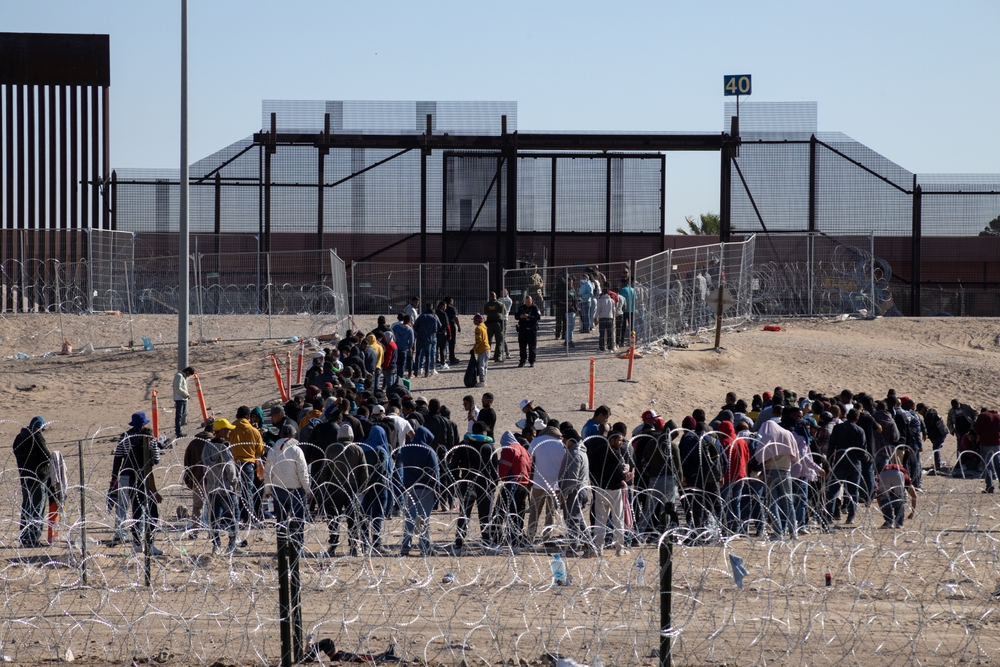France's Migrant Deportation Policy: A Remote Island Solution?

Table of Contents
The Current State of France's Immigration and Deportation Policies
France's immigration laws and deportation procedures are complex, balancing national security concerns with international human rights obligations. The country has seen a substantial increase in asylum seekers and undocumented migrants in recent years, placing strain on resources and infrastructure. The French government faces numerous challenges, including:
- Overwhelmed Asylum System: Processing times for asylum applications are lengthy, leading to backlogs and delays.
- Limited Deportation Resources: Difficulties in securing cooperation from migrants' countries of origin hamper successful deportations.
- EU Regulations: France's immigration policies must comply with European Union regulations, adding another layer of complexity.
- Integration Challenges: Successfully integrating legal migrants into French society is an ongoing challenge requiring significant investment.
Current legal frameworks for deportation include provisions for both administrative and judicial expulsion, varying depending on the individual's status and the grounds for deportation. Success rates of deportations remain relatively low due to various obstacles, including the lack of cooperation from countries of origin and legal challenges. The role of the European Union in managing migration involves coordinating policies and sharing resources amongst member states, but also introduces limitations on France's independent action.
The Proposed Remote Island Solution: A Detailed Analysis
The proposed relocation of migrants to remote islands, potentially including Mayotte, raises numerous logistical and ethical concerns. The practical challenges are substantial:
- Transportation: The cost and logistics of transporting large numbers of migrants to remote locations are considerable.
- Infrastructure: Remote islands often lack the necessary infrastructure to accommodate a significant influx of people, requiring substantial investment in housing, sanitation, healthcare, and education.
- Resource Management: Providing adequate resources—food, water, and medical supplies—on remote islands poses a significant challenge.
- Economic Impact: The economic impact on both the mainland and the chosen island(s) requires careful analysis. While some might argue for reduced strain on mainland resources, the cost of establishing and maintaining infrastructure on the island could outweigh any savings.
Infrastructure requirements for housing and essential services would necessitate significant investment and planning. A thorough environmental impact assessment is crucial to minimize the ecological footprint of such a project. A comprehensive cost-benefit analysis is essential to determine the financial viability and long-term sustainability of the relocation plan. Furthermore, there’s a risk of exploitation of migrant labor on the islands if proper safeguards aren’t in place.
Mayotte: A Case Study of Island Relocation
Mayotte, an overseas department of France in the Indian Ocean, already faces significant challenges related to irregular migration from neighboring countries. Relocating additional migrants could exacerbate existing tensions:
- Overpopulation: Mayotte already has a high population density, straining its resources and infrastructure.
- Social Tensions: Existing social tensions related to migration could intensify with further population increases.
- Strain on Resources: Increased demand for resources such as housing, healthcare, and education would put further pressure on Mayotte's limited capacity.
- Limited Infrastructure: Mayotte's existing infrastructure may struggle to accommodate a larger population.
Analyzing Mayotte's experience provides valuable lessons regarding the potential successes and failures of island relocation policies. The lessons learned in Mayotte could be crucial in informing decisions about other potential relocation sites.
Ethical and Legal Considerations of Remote Island Deportation
The proposed policy raises significant ethical and legal concerns, potentially violating international human rights law:
- Violation of Refugee Rights: Relocating asylum seekers to remote islands could violate their right to seek asylum and access fair procedures.
- Right to a Fair Hearing: Migrants' right to a fair hearing and legal representation could be compromised by geographic isolation.
- Isolation and Discrimination: Relocation to remote islands may lead to isolation, discrimination, and a lack of access to essential services.
- Humanitarian Concerns: The potential for human rights abuses and inhumane treatment of migrants is a significant ethical concern.
Compliance with international human rights treaties, such as the Refugee Convention and the Universal Declaration of Human Rights, is paramount. Potential legal challenges to the policy are likely, particularly from human rights organizations and NGOs. The ethical arguments against the policy center on the potential for human rights violations and the inherent injustice of forced relocation. The role of NGOs and human rights organizations will be crucial in monitoring the situation and advocating for the rights of migrants.
Conclusion
France's proposed remote island deportation policy presents a complex dilemma, balancing the need for effective migration management with the imperative to uphold human rights. The Mayotte case study highlights the potential challenges and limitations of such a strategy. While proponents argue for reduced pressure on mainland resources, the logistical hurdles, economic implications, and profound ethical concerns cannot be ignored. Further research, open dialogue, and a comprehensive assessment of the long-term implications are crucial to developing a humane and effective solution. Any policy must prioritize the ethical treatment of migrants and strict adherence to international law. Let's continue the conversation about responsible and ethical migrant deportation policies in France.

Featured Posts
-
 Metas Monopoly Trial The Ftcs Shifting Strategy
May 19, 2025
Metas Monopoly Trial The Ftcs Shifting Strategy
May 19, 2025 -
 Jennifer Lawrence And Husband Enjoy A Casual Stroll New Photos
May 19, 2025
Jennifer Lawrence And Husband Enjoy A Casual Stroll New Photos
May 19, 2025 -
 California Fertility Clinic Bombing Fbi Believes Suspect Died In Blast
May 19, 2025
California Fertility Clinic Bombing Fbi Believes Suspect Died In Blast
May 19, 2025 -
 Filth Your Complete Guide To Film4 Hd Showtimes
May 19, 2025
Filth Your Complete Guide To Film4 Hd Showtimes
May 19, 2025 -
 The Huskies Of Honor Welcoming Paige Bueckers
May 19, 2025
The Huskies Of Honor Welcoming Paige Bueckers
May 19, 2025
